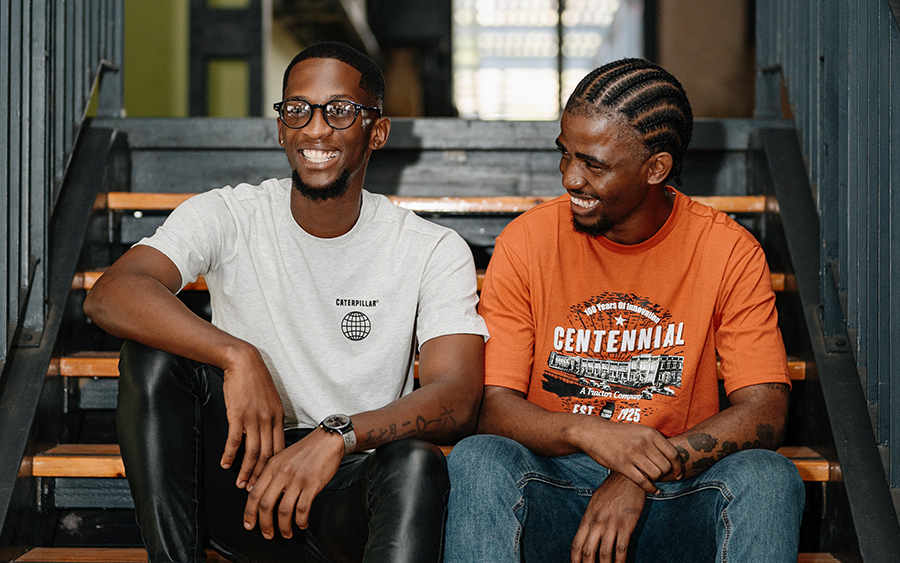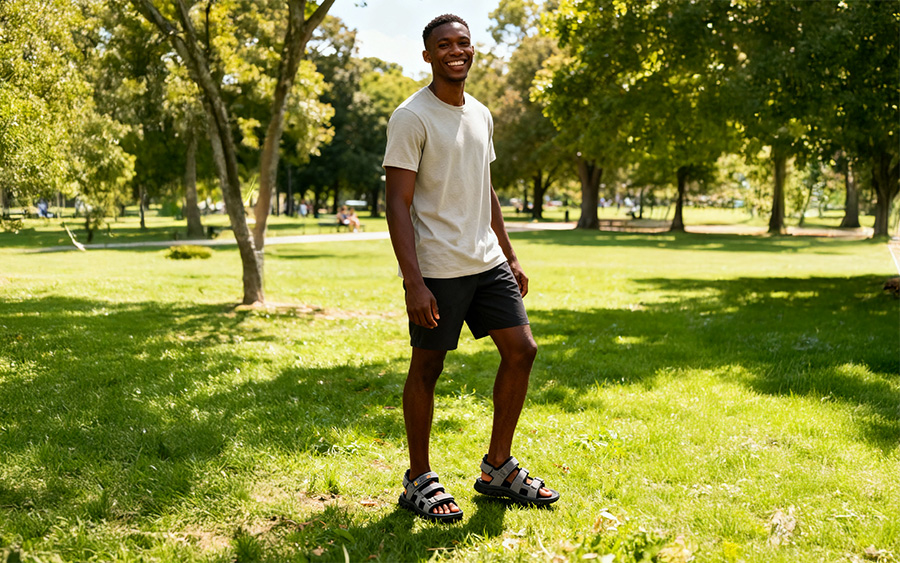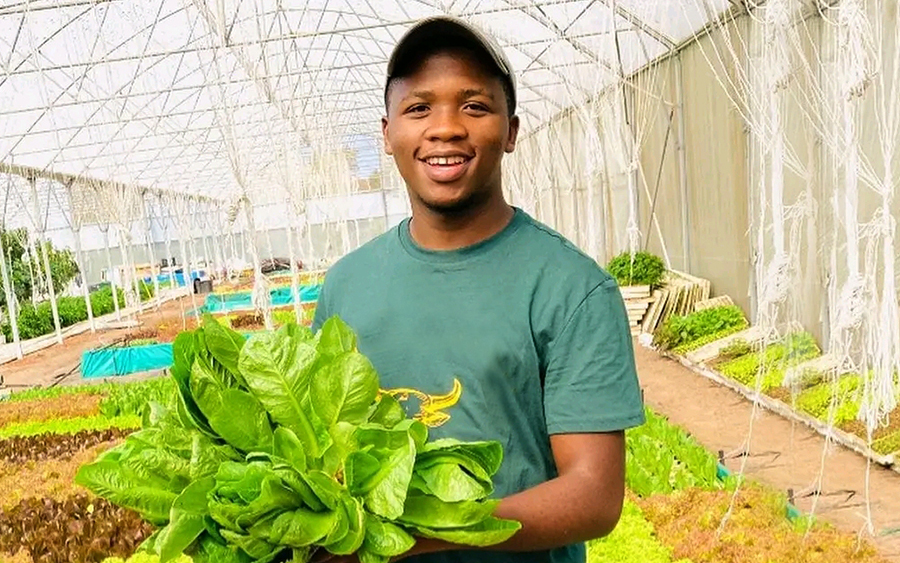A Guide to Street Dance Styles with Junior King

From the streets to the studios, Junior King has been making headlines, in both his craft and community outreach programmes. As a dancer, director, artist, and teacher, this inspirational individual is sharing his journey online and uplifting today's youth through the arts.
As a pioneer in revolutionising the dance industry, in today’s blog, we delve into Junior King’s life journey and his goals for the future of street dance.
1. Can you describe your journey to becoming a professional dancer?
It all began when I was only 5 years old, living in a small town called Uitenhage. My cousin, Guston, was part of a modelling show, and at the last minute, I was asked to fill in for a boy who was ill and could no longer participate.
I just remember getting on that stage and dancing my heart out. By the end of my performance, I had a standing ovation. The crowd really loved me, and that validation felt good.
This was one of the key moments in my life, where I realised that I wanted to do this for the rest of my life.

2. What styles of dance do you practise?
My goal as a dancer was to become as versatile as possible. This led to me trying and practising various dance styles such as amapiano, gqom, krump, pop and locking, classical, jazz funk, hip hop etc.

3. What inspires your choreography and dance style?
A lot of things inspire me to be honest. Things I encounter daily, such as seeing construction workers busy on a site or watching kids jump rope and play hopscotch.
These everyday activities may spark some inspiration for a certain dance move. So, essentially, I draw inspiration from everything and anything.
4. How do you stay current with trends and developments in the street dance scene?
It’s not that difficult to stay on top of what’s fresh in the dance scene. Personally, I log onto TikTok and see what the first 10 videos are about, and then already, it’s quite easy to spot what the new dance challenges are.
We try to keep things fresh at our studio by trying out these challenges, but mixing them in with our own spice. This adds some originality to these trends.

5. Can you share a memorable performance or moment in your career as a dancer?
There are a lot of moments that come to mind, but the top three would be:
● When I had the opportunity to share the stage with Meek Mill and Post Malone at Castle Light Unlocks. That was in Johannesburg and took place at the Dome. It was just insane to share the stage with these international artists.
● Opening my dance studio is a highlight that is quite close to my heart.
● Finally, when I represented South Africa at the World Hip Hop International Championship, in Las Vegas.
6. What challenges have you faced as a dancer, and how have you overcome them?
The challenges I experienced, were to my detriment, if I can put it like that. This industry is a cut-throat industry, and just like my students, I too, was once learning at a dance academy.
It was evident that I was the best dancer at the academy at the time, due to my accolades and achievements, and because of that, I was promised that I would be promoted to the senior crew, which was my dream.
Unfortunately, 6 years later, I still wasn’t promoted for reasons that I still do not know today, and that then pushed me into a deep depression, which became life-threatening at the age of thirteen.
Fortunately, my mother intervened. She encouraged me to believe that despite not making it into that crew, I would become a strong figure in this industry and I would make a name for myself. At the time, I couldn’t see that, but today I can happily say that I was wrong, and my mother was right.

7. We know that you work a lot with the youth. Please tell us about how these initiatives began, and what was the driving force behind them.
It was my above-mentioned experience that led me on this path to open my dance studios. Here, we not only teach dance but also discipline and the importance of education, because these are the values that my mother taught me.
This is my way of giving back to the community, and my goal is to open as many dance schools as possible and start as many community projects as possible. I want to teach children that they don’t need to depend on these external factors, and third parties to become successful. Instead, I want to teach them to use their circumstances to their advantage, because I believe that anybody who comes from any background, can make a success of themself.

8. Can you discuss the importance of music in your dance choreography and how you select tracks to dance to?
Music is very important, after all, you can’t dance without music. How I choose music, is basically what I feel would work. If I like a song, I truly hear every component of it - the snares, the drums, and the lyrics. I use all of this and translate it into dance. The key is for the music to captivate me, and once it does that, it becomes a track I will dance to.
9. What do you see for the future of dance, when you teach your various youth groups?
I have this dream that my students will carry on the legacy of King Dance Studio all over South Africa, or better yet, all over the world.
When I drive around in the streets, I see kids dancing everywhere and anywhere, they are mimicking my moves or one of my peer’s moves, or even a challenge they saw on TikTok. More kids are dancing, and that is a good sign for me because it makes me believe that the future is in good hands.
All I can hope for is that they continue the legacy, and that dance does not die out.
10. The theme for Cat this year is ‘break new ground’ - can you comment on this and what it means to you in your industry?
This is so incredibly relatable to my situation. I have always been a pioneer of the idea that dancing is not simply a background act, it is a headline act and a main act. For years, there has always been this stigma that dance is a background act. Especially in music videos, where often dancers are only used as fillers in the background, and the singer is considered the main event.
But, I have been fighting and successfully pioneering the idea that dance is a headline act as well, and needs to be seen as a main act, not a background act. And I think this relates perfectly to breaking new ground, in that I am trying to revolutionise the dance industry as a whole. The ground that I am going to break, is to pave the way for more dancers to be booked as main events and acts, at festivals or other artistic events.
After getting the opportunity to get to know Junior King and the art of dance, we learned that dance is not just about movement but about the stories it tells and the lives it touches. We wish Junior King well on his journey to breaking new ground within this industry, so that he may continue to uplift the youth.

Keep up with Junior King on his official TikTok page, @thejuniorkingofficial. If you’re feeling adventurous, why not take on one of his dance challenges in your favourite pair of Cat Footwear? Remember to tag us both online, and let's join the movement of revolutionising the dance industry today.







